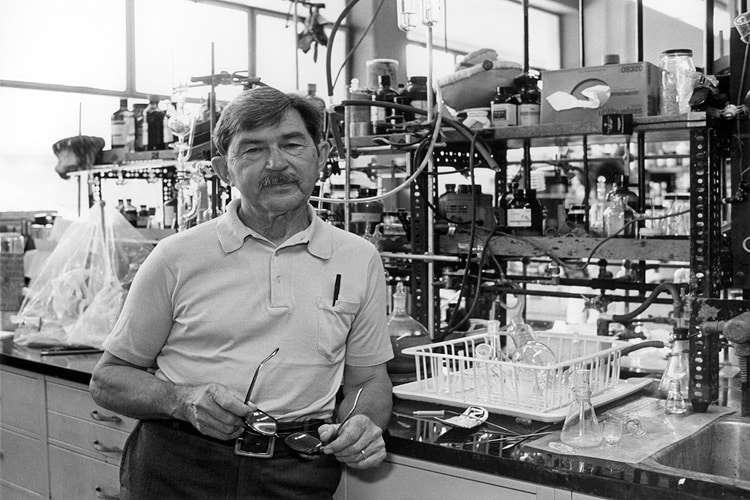Celebrating life and legacy of Henry Taube

Henry Taube (November 30, 1915 – November 16, 2005) was a Canadian-born American chemist. He was awarded the Nobel Prize in Chemistry in 1983.
Life and Career
Henry Taube was born on November 30, 1915, in Neudorf, Saskatchewan, Canada, Taube’s life and career spanned several decades.
Henry Taube grew up in Saskatchewan and developed an early interest in science. He attended the University of Saskatchewan, where he earned his bachelor’s degree in 1935. He then pursued graduate studies at the University of California, Berkeley, completing his Ph.D. in 1940 under the supervision of Gilbert N. Lewis. His doctoral research focused on the mechanism of electron transfer reactions.
After completing his Ph.D., Taube joined the faculty at Cornell University and later moved to the University of Chicago. Throughout his career, Taube made groundbreaking contributions to the understanding of electron transfer reactions in metal complexes. His work laid the foundation for the field of bioinorganic chemistry, exploring the role of metal ions in biological systems.
One of Taube’s most notable achievements was the elucidation of the mechanisms of electron transfer reactions in metal complexes, which earned him the Nobel Prize in Chemistry in 1983. He demonstrated how electrons move between metal ions with different oxidation states, a process crucial to various biological and chemical reactions.
Taube held various academic positions, including at Cornell University and Stanford University, where he continued his research and mentored numerous graduate students. His work not only advanced the understanding of chemical reactions but also had implications for fields such as catalysis and energy conversion.
Henry Taube passed away on November 16, 2005, in Palo Alto, California, at the age of 89.
Award and Legacy
Henry Taube received numerous awards and honors during his illustrious career, recognizing his outstanding contributions to the field of chemistry. One of the most prestigious accolades was the Nobel Prize in Chemistry in 1983. He was awarded the Nobel Prize for his groundbreaking work on the mechanisms of electron transfer reactions in metal complexes. This research significantly advanced the understanding of chemical reactions and had broad implications for fields ranging from bioinorganic chemistry to catalysis.
In addition to the Nobel Prize, Taube received several other notable awards, including the National Medal of Science in 1976 and the Priestley Medal, the highest honor awarded by the American Chemical Society, in 1985. These awards underscored the significance of his research and its impact on the field of inorganic chemistry.
Henry Taube’s legacy is enduring and far-reaching, leaving a lasting impact on the scientific community. His pioneering work on electron transfer reactions in metal complexes laid the foundation for the field of bioinorganic chemistry. Researchers continue to build upon Taube’s insights, exploring the role of metal ions in biological systems and their applications in various chemical processes.
Taube’s emphasis on understanding fundamental chemical mechanisms has influenced generations of chemists. His legacy extends beyond his specific discoveries to the broader principles he established, guiding subsequent research in inorganic chemistry and related disciplines.
Observer Voice is the one stop site for National, International news, Sports, Editor’s Choice, Art/culture contents, Quotes and much more. We also cover historical contents. Historical contents includes World History, Indian History, and what happened today. The website also covers Entertainment across the India and World.

